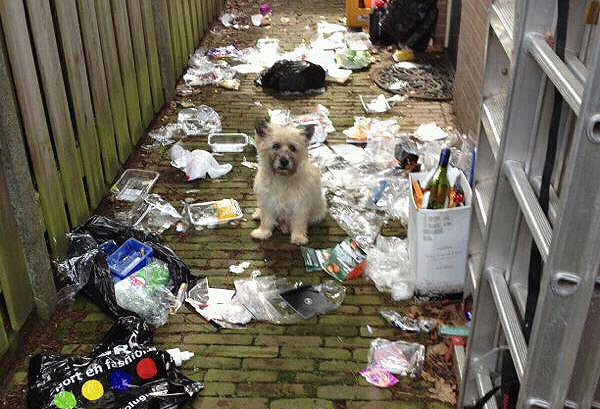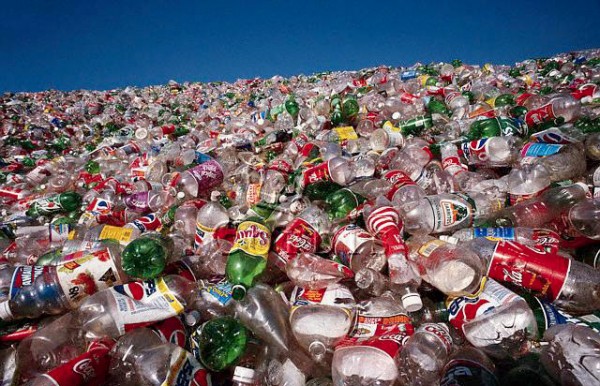For The Sake Of The Animals, Let's Clean Up Our Act
| Tweet |

Let�s face it � Malaysians have dirty habits. The massive amount of litter along highways, in forests and in our seas and rivers is injurious to the Planet. Our rubbish clogs waterways and strangles fish, birds, turtles and mammals.
Stray animals push their faces into discarded food containers to lick the food residue and get their heads stuck inside. Sometimes, they choke on plastic bags or Styrofoam or are cut by discarded tin cans.
Chemicals used by humans such as weedkillers, bleach, solvents and cleaning solutions also have the potential to harm and kill animals if not used or disposed of with care.
If we claim to love animals, we must clean up our act. Always, the best advice is to consume less and to live more simply. However, even if this were a counsel of perfection, we can still at least carefully dispose of everything we use and pick up after those who are less careful, and exercise care as consumers in purchasing cleaning solutions and other chemicals that supposedly make our work and lives easier.
Here is part one of some tips for the concerned citizen:
1. Avoid buying unnecessary plastic products and accept fewer plastic bags from retailers. Choose cardboard cartons, wax paper and so on. Keep away from Styrofoam and any plastic foam products. Even when you dispose of plastic waste properly, plastics in landfills may find their way into hungry animals� throats and stomachs and cause unnecessary, and often slow and agonizing, deaths from suffocation, starvation and poisoning.
2. Recycle your paper, aluminium, plastic and glass. Containers that do not end up in your trash and landfill have less potential to hurt scavenging animals.
3. Rinse out jars and containers in which animals� heads can get caught. Screw lids back onto empty jars, and put sharp tabs and lids back inside empty cans. Then stuff and wrap the cans with newspaper before disposing of them so they cannot slice tongues and throats. Alternatively, crush or hammer the open ends of the cans as flat as possible, with the sharp tabs inside, so hungry animals have no access to them.
4. Tear open one side of cardboard cartons and other containers so stray animals, civets, tree shrews, birds and other foragers cannot get trapped inside them.
5. Cut apart plastic six-pack rings before disposing of them so they will not strangle birds and aquatic life. Whenever possible, opt for cardboard six-pack can carriers, which many manufacturers have now replaced plastic six-pack rings with. Whenever you find six-pack rings on the beach or near rivers and forests where animals forage, snap or cut the rings apart and take them along with you for disposal later.
6. Use rubbish bins with clasps to stop animals from falling in and getting trapped. Always keep the lid on your rubbish bin and hold it down with a brick if necessary to prevent raids by stray cats and dogs. Always replace the lid on public rubbish bins, especially those at nature parks and picnic sites. The slight inconvenience of having to find a place to wash your hands is a small price to pay to prevent possible injury to a hungry animal.

7. Never dispose of razors, nails, fishhooks and other sharp or dangerous items by dropping them loose with your other garbage. Wrap them in newspaper and stuff them inside other containers or cardboard toilet roll cores. If there are several sharp items to be disposed of, use adhesive tape to tape them together to make them less sharp and less likely to be accidentally swallowed.
8. Pick up string, fishing line and all plastic litter near streams, beaches and forests to avoid animals being strangled or injured by such trash.
9. Weedkillers and herbicides pose a grave danger to insects, birds and small animals such as toads and frogs. If you absolutely must clear your garden, please consider the animals that household poisons will harm, and opt to engage hired help to weed your garden and perhaps replant it with low-maintenance grass instead.
10. Never pour cleaning solutions, bleach and other chemicals into the drain. Not only will this pollute our waterways, it could kill and seriously harm small animals such as toads that live in our drain outlets and birds that forage for rice and other food in our drains. For this reason, switching to environmentally-friendly, plant-based cleaning solutions and detergents is the correct and compassionate thing to do.
11. Our household pets are often harmed by our use of chemicals. Each year, numerous pets die after accidentally consuming bleach, detergent, tick and flea solution, pesticide and other dangerous substances. Whether your pet lives indoors with you or outdoors in the garden, please get down to their level and check your house for chemicals and substances that could harm them. Switch to using Eco-friendly cleaning agents for mopping your floor, cleaning all surfaces and doing the laundry. Avoid using bleach and products containing bleach, as the chlorine fumes alone are often enough to make your pets sick. Switch to products containing essential oils like Citronella and Lavender to repel insects and disease vectors, rather than aerosol sprays and poison pellets that your curious dog, cat or hamster could accidentally ingest.
Alleviating the hunger, thirst and malnutrition of animals goes beyond feeding those you encounter. It also entails being considerate to and responsible for the animals you do not see but are affected by your actions. Animals have a right to look for food, and it is our duty to ensure that they are not killed by our negligence and indifference while they are at it.
| Tweet |

Facebook Comments